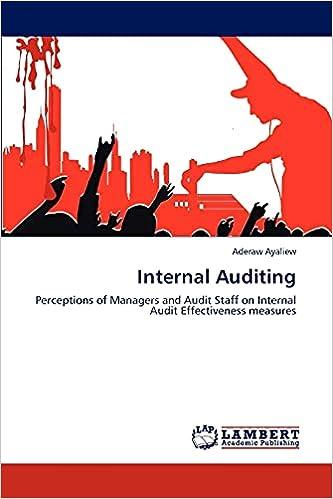Question
Let's delve into a detailed case study involving a manufacturing company that uses absorption costing as its primary method of cost allocation and income determination.
"Let's delve into a detailed case study involving a manufacturing company that uses absorption costing as its primary method of cost allocation and income determination. In this case, the company produces a range of products, each with its unique cost structure, and operates in a dynamic market environment. We'll explore the intricacies of absorption costing and its impact on financial reporting, decision-making, and inventory valuation within this specific scenario.
The case study involves the following key elements:
Product Diversity: The company manufactures multiple products, each with varying production costs, sales prices, and demand levels. How does absorption costing account for these differences in cost structures, and how does it affect the profitability analysis of individual products?
Overhead Allocation: Discuss the methodology used by the company to allocate overhead costs to products. How does absorption costing allocate both variable and fixed manufacturing overhead expenses, and what are the implications for product costing and pricing decisions?
Inventory Valuation: Explain how absorption costing impacts the valuation of ending inventory on the balance sheet. What role does the absorption rate play in determining the value of unsold products in the inventory?
Periodic Profitability: Analyze how absorption costing influences the company's periodic financial statements, specifically focusing on the income statement. How does the inclusion of fixed manufacturing overhead costs impact reported profit compared to other costing methods, such as variable costing?
Decision-Making: Explore how absorption costing affects various managerial decisions, such as pricing strategies, production planning, and make-or-buy decisions. Are there scenarios where absorption costing might lead to suboptimal decisions, and if so, what are they?
Now, for the specific questions:
Question 1: Considering the diversity of products and their distinct cost structures in this case study, how does absorption costing handle the allocation of manufacturing costs? Can you explain how this method ensures that each product's total cost accurately reflects its associated manufacturing expenses?
Question 2: With regard to decision-making within this manufacturing company, how does absorption costing impact pricing strategies, particularly when dealing with products with different cost structures? Are there circumstances where an alternative costing method might provide more relevant insights for pricing decisions? Please elaborate."
These questions aim to explore the nuances of absorption costing in a real-world scenario and its implications on various aspects of financial reporting and decision-making.
Step by Step Solution
There are 3 Steps involved in it
Step: 1

Get Instant Access to Expert-Tailored Solutions
See step-by-step solutions with expert insights and AI powered tools for academic success
Step: 2

Step: 3

Ace Your Homework with AI
Get the answers you need in no time with our AI-driven, step-by-step assistance
Get Started


